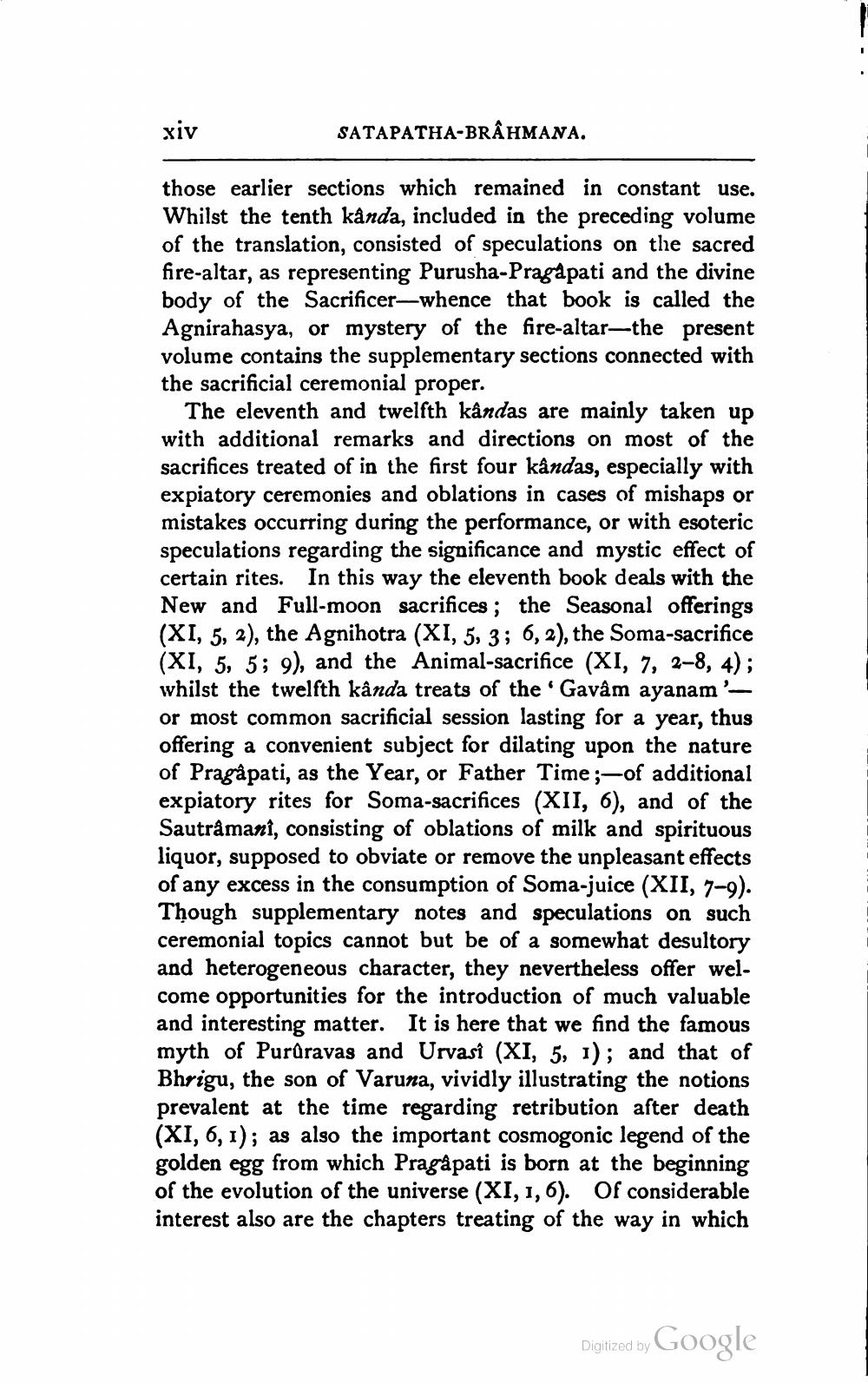________________
xiv
SATAPATHA-BRAHMANA.
those earlier sections which remained in constant use. Whilst the tenth kända, included in the preceding volume of the translation, consisted of speculations on the sacred fire-altar, as representing Purusha-Pragapati and the divine body of the Sacrificer—whence that book is called the Agnirahasya, or mystery of the fire-altar—the present volume contains the supplementary sections connected with the sacrificial ceremonial proper.
The eleventh and twelfth kândas are mainly taken up with additional remarks and directions on most of the sacrifices treated of in the first four kändas, especially with expiatory ceremonies and oblations in cases of mishaps or mistakes occurring during the performance, or with esoteric speculations regarding the significance and mystic effect of certain rites. In this way the eleventh book deals with the New and Full-moon sacrifices; the Seasonal offerings (XI, 5, 2), the Agnihotra (XI, 5, 3; 6, 2), the Soma-sacrifice (XI, 5, 5; 9), and the Animal-sacrifice (XI, 7, 2-8, 4); whilst the twelfth kânda treats of the Gavâm ayanam'or most common sacrificial session lasting for a year, thus offering a convenient subject for dilating upon the nature of Pragå pati, as the Year, or Father Time ;-of additional expiatory rites for Soma-sacrifices (XII, 6), and of the Sautrâmani, consisting of oblations of milk and spirituous liquor, supposed to obviate or remove the unpleasant effects of any excess in the consumption of Soma-juice (XII, 7-9). Though supplementary notes and speculations on such ceremonial topics cannot but be of a somewhat desultory and heterogeneous character, they nevertheless offer wel. come opportunities for the introduction of much valuable and interesting matter. It is here that we find the famous myth of Purúravas and Urvasi (XI, 5, 1); and that of Bhrigu, the son of Varuna, vividly illustrating the notions prevalent at the time regarding retribution after death (XI, 6, 1); as also the important cosmogonic legend of the golden egg from which Pragàpati is born at the beginning of the evolution of the universe (XI, 1, 6). Of considerable interest also are the chapters treating of the way in which
Digitized by Google




